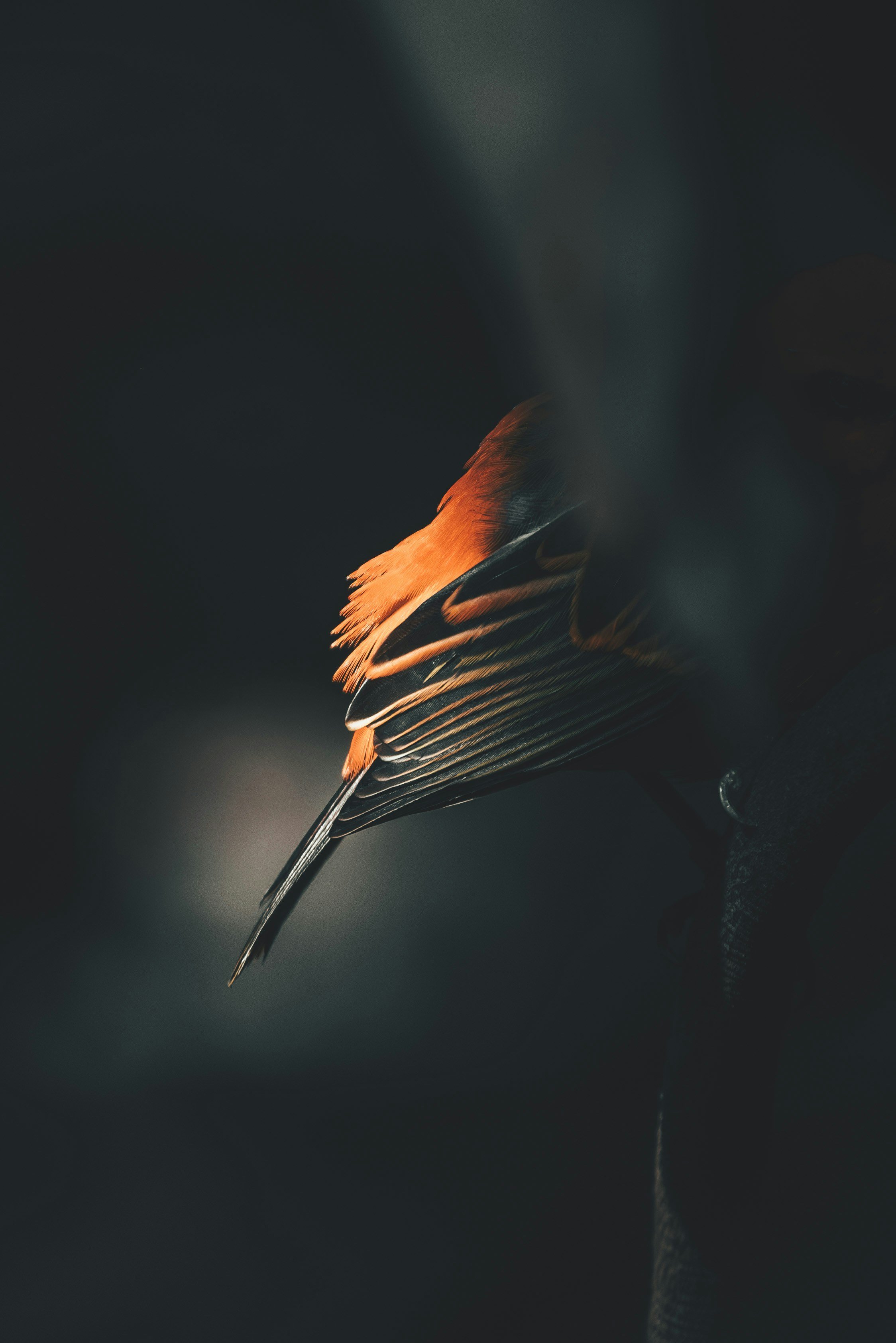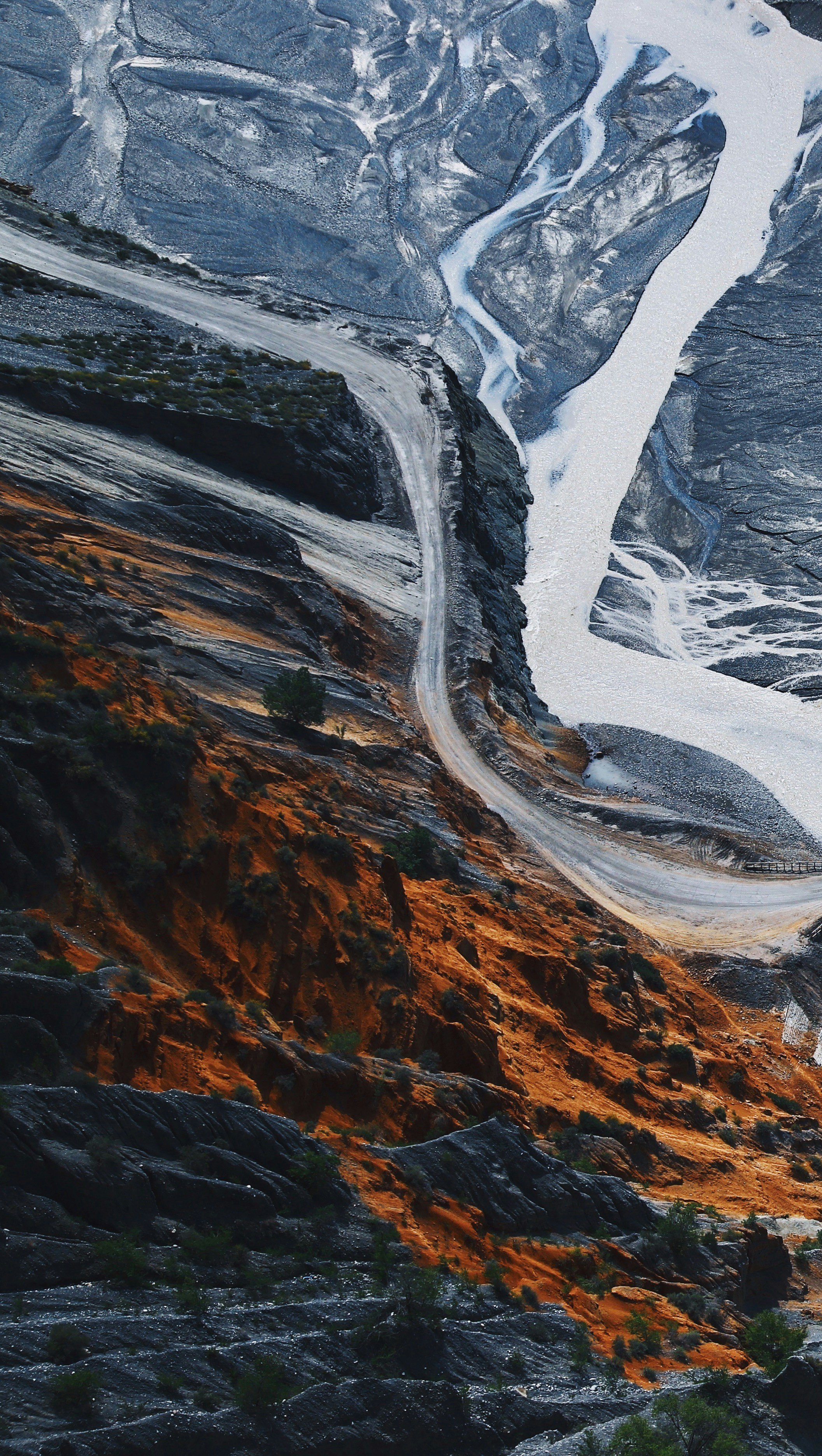Wings Smacking Windows

Wings Smacking Windows
Courtney Ellis
On Caring in the Face of Helplessness
Last October, over a thousand birds collided with a single building in Chicago on one night, most of them weary migratory birds on their journey south. Schoolchildren stepped over tiny, feathered corpses on their way to class. Commuters wound their bikes around piles of feathers.
Scientists estimate that 3 billion birds have been killed by window strikes over the last 50 years. Miles away and many years in the past, my parents were away when I heard the bang from the back of the house. “What was that?” my grandmother asked from the rocking chair where she’d been reading aloud to me and my younger sisters.
“Something hit the window,” I said, eleven years old and trying to be brave like Susan Pevensie, whose heroics my grandmother had just illuminated. I wished I had a bow and arrow. “I’ll go figure out what it was.”
I ran down the stairs and out the basement door, onto our patchy Wisconsin yard framed by bracken ferns and sugar maples and white pines with a muddy trail just beyond that lead down to a silty, blue-black lake. I scanned the grass below the window and a sheen of emerald caught my eye. There it was, the bold green of a male mallard’s head. I stepped quietly closer. His neck was twisted from his warm, feathered body at an odd angle. His eye met mine. He was still breathing.
My parents were in Europe, traveling for business during a month of sky-high international tension. The last time my mom went overseas she left a London Tube station minutes before the IRA blew it up. My father had tucked an envelope into my hand just before they left for the airport. “My chocolate chip cookie recipe,” he said. “In case I don’t make it.”
I examined the duck, its chocolate breast moving gently up and down with its breath, its black tail-feathers curled, its yellow bill tinged with brown. Drops of deep maroon blood oozed from the line where bill met feathers. I began to cry.
*
A few months ago, the most famous owl in New York City perished after striking a window. Flaco, a Eurasian Eagle Owl who escaped from the Central Park Zoo in 2023 after someone cut a hole in his enclosure, quickly became a local celebrity. After several failed recapture attempts, zoo employees and bystanders alike held their breath as he took his freedom. Could a wild animal that had never been wild—he was brought to the zoo as a fledgling—survive in the urban jungle with all its pesticides and traffic?
Flaco survived for over a year, inspiring articles and think pieces in the New York Times and NPR. He learned to hunt, find shelter, and avoid vehicles and wires. It was, unsurprisingly, a man-made object that ushered in his early end, hitting a building like a bullet. For weeks the Internet mourned him.
At age eleven I didn’t know about window strikes. What I did know was that our large picture window looked as much like forest as it did like glass, the reflections of the surrounding trees tall and proud in its single pane. The window framed a Wisconsin pastiche—frosted trees in the winter, with white-tailed deer nervously high-stepping through snowdrifts; the budding of spring, with its bursts of birdsong and muddy melt. In late summer, I’d sit on its padded window seat with my sisters and watch the boiling clouds pour in until my parents sent us to the basement for tornado shelter. In autumn, I’d watch lazy leaves tumble from the canopy in reds and oranges and yellows, torn between the desire to witness every moment and the fear that, sitting in such a conspicuous spot, I’d be called upon to rake.
*
That window was the best part of our home, a house my parents designed from scratch when I was just a kindergartener. It unsettled me to realize something I loved, something that seemed so benign could become a death-trap. I nudged the bird gently with my toe and wondered whether my dad disclosing his cookie recipe—up until then a family secret—was a sign that he was about to be blown to bits.
I ran back into the house and returned with a bowl of water. Maybe the duck was thirsty, I thought, gripping the bowl as a remedy for my own powerlessness. Maybe, I hoped, there was something I could do. But as I set the bowl down in front of him, his eyes grew glassy and his breaths shallower. He stilled.
“I’m sorry,” I whispered. “I’m so, so sorry.” I straightened out the duck’s crooked neck and smoothed its feathers. “You should have a name,” I said. But I didn’t feel worthy of bestowing one. I took a few deep breaths, willing the tears to fade. I couldn’t risk such a show of emotion with my parents away. My grandmother needed my help with my siblings and there was no sense in upsetting them, too.
“What was it?” she asked when I trudged back up the basement stairs. “Oh, just a bird,” I said, and then added a lie. “Everything is fine.”
*
Growing up, I was so often encouraged to do big things for God, great things. Perhaps I would be a missionary or a pastor’s wife or a doctor in a country without good medical care. I was to Make a Difference™ and Change the World™. Ever an earnest child, I took the advice to heart. I went to a Christian college, married a Christian man. I’m raising Christian babies. I’m serving in Christian ministry. I even became a pastor and a pastor’s wife.
I remember a college professor’s wise words to me after decades of his own ordained ministry: “You think you’ll change the world,” he said. “But really, you can’t make that much of a difference.”
At 21, I heard this as despairing. Surely, he just wasn’t trying hard enough! But now, thirteen years into ordained ministry at age 41, I hear it as hopeful. The pressure is off. The influence game is over. The weight of the world is lifted from my shoulders so that the real work of doing the next small, right thing can now begin. These days I sit at hospital bedsides in seas of suffering, holding a single hand, and I think, “It matters to this one.” I wipe the nose of my youngest child, hugging her close, and realize, “It matters to this one.” I walk through the local marsh noticing a new sandpiper and press a hand to my own heart. It matters to this one.
*
Most birders have a few particular birds they hold within their hearts. Wisdom, a septuagenarian celebrity albatross and the world’s oldest bird who, up until only recently, was still laying eggs on Midway Atoll. Mary, the banded Blue Jay who visited microbiologist Janet Hill for the ninth year running. A Stellar’s Jay named Stella that I think of every time I see one of those black-and-blue punk rock wonders.
For me, the memory of this unnamed duck, one of thousands that met its end in a window strike that year, follows me wherever I go. I think of the story my childhood pastor told from the pulpit one Sunday about a man throwing beached starfish back into the water.
“You’ll never make a difference,” said a beachcomber walking by. “There are too many of them stranded on the sand.” “It matters to this one,” said the first man.
I want to believe that my love and presence meant something to the common mallard in its final moments in my tiny Wisconsin town on a chilly September afternoon. That it received my vigil as an apology of sorts for my house intruding on its flight path, for my entire species’ lack of care for its habitat. If I’m honest, I wanted absolution, too.
As a preteen, the tragedy of one duck’s early end floored me. As an adult, the weight of the window-strike problem feels sadly predictable. We don’t care for one another very well, much less the natural world.
But when faced with tsunamis of despair, whether billions of dead birds or thousands of dead civilians, it is best not to be overcome but to step back. If we drown, we will lack the breath needed to work for change. All hope is local. Most change is small.
In the song “Cavanaugh Park,” Andrew McMahon, sings, “One day you’ll be a man. And men can do terrible things, yes they can.” It’s the lyric that plays in my mind when I watch atrocities on the nightly news or scroll through the darker corners of social media. We can—and do—do terrible things. We do them both on purpose and simply out of unknowing. We do them consistently. And we need not look further than our own hearts or backyards to witness the wages of sin. But as a follower of Jesus I believe that this lyric’s inverse can also be true. Humans can, also, do good things. Small and simple right things. Hopeful, beautiful things.
Flaco the Owl’s death heralded a change in how New York City approaches bird strikes, with legislators renaming the statewide Bird Safe Buildings Act the “FLACO Act.” In Chicago, the city is partnering with the Audubon Society to address the same. Bald Eagles and Brown Pelicans have made their comeback because naturalists and ornithologists and building developers and lay people and schoolchildren and environmental protection advisors decided, “This far and no further.” Here in southern California, where I now make my home, we are putting decals on our house’s small windows to protect the birds. Jesus speaks a whole parable about this very thing: intentions are nothing without follow-through.
*
A few days later, my parents returned from Europe with small souvenirs for us in hand. Once they’d hugged us all, unpacked and set the house back in order, my dad rolled the lawnmower from the garage to the backyard where the grass had grown tall and wispy. I sat on the window seat and watched him, the sharp smell of freshly cut grass rising through the second-story windows. He traced his usual path through the yard, up and over its small rise and down again, swath by swath.
He came to the spot where the duck still rested, a cloud of flies lifting from it as he stopped the mower and bent over it. He grabbed it by the legs and flung it deep into the woods beyond. I didn’t cry this time, but I did feel some kindling flicker into flame deep inside. This duck mattered to me in ways I couldn’t describe. It was my first up-close brush with death, the first time I stood vigil, watching breath slip away. It was the first moment I realized that something beautiful could also be an instrument of destruction.
It was only a duck, and yet it is often the small and lowly things that usher in whole worlds, the understanding accumulating over decades and lifetimes when we can finally bear its weight.
“Look at the birds,” Jesus tells the crowds gathered around him on the mountainside in Matthew’s Gospel. And I do.
Courtney Ellis
Writer & Pastor
Courtney Ellis is a pastor at the Presbyterian Church of the Master in Mission Viejo, California. She is the author of several books, including Happy Now and Present. Her latest book is entitled Looking Up: A Birder’s Guide to Hope Through Grief. She also hosts The Thing with Feathers, a podcast about birds and hope. She lives in Orange County, California, with her husband and three children.
Photography by Rob Potter




